At Mind Lab I learnt about collaborative learning and Leadership. I learnt that to lead change requires vision. Leadership is a willingness to recognise the need for change, and the ability to lead change. I am a Democratic and Coaching Leader. I empathise with others and listen to what others have to say. I look at all options before making a final decision. I like process and see the need to analyse all possible outcomes positive or negative.
I also learnt about Golemans other leadership styles and can now differentiate them. I can see the leadership styles my colleagues possess and find myself listening with the intent to understand their points of views and actions from a more informed perspective. A good leader influences, motivates a team through honesty and transparency, while still achieving a common goal. It is not static, but an ongoing endeavour through being connected and having an appreciation for diversity.
I just had my appraisal and some discussions were related to Mindlab. My team leader said that if a leadership position arose within our school, I should apply.
Inquiry process; I was also able to integrate some new Mind Lab resources with my already established writing inquiry. I found the course material relevant and inspiring, I was able to trail various apps in my classroom, then share and reflect on the ‘effectiveness’. Were the students engaged? Was the learning shallow? Do they need more explicit teaching? I did at times feel overwhelmed when reflecting, because I am teaching a year 1- 2 class. I knew the skills one would need to possess to complete a given task for example; e-learning skills, learning web borrow functions, letter identification and reading abilities. At times I had to scale lessons back into more bite size sequences, so my learners could grasp the ‘process concept’.
Over time through listening and speaking with other Mindlabers and hearing similar frustrations or successes, I didn’t feel so alone in the quest to implement my vision of digital learning. I believe professional conversations are vital for unlocking information, best practice, and the trial and error type scenarios.
Over the past 24 weeks I read so much scholarly literature, blogs and personal testimonies and then I had to critically analyse the differences or similarities, to be able to answer some of my own hunches. The literature review was especially helpful. I realise that being a teacher, researcher and facilitator of digital technologies I must always be a problem solver and continually make connections to real-life problems.
I also learnt about digital innovation. I trialed various blogs, Apps, games, quizzes, including many websites that were interactive, collaborative and evoked a critical discussion with my colleagues and parents. I asked questions about engagement and motivation, community, school policies, and I found that we need to be more future focused and community minded.
I tried Colour Alive, Blendspace, Powtoon, Book Creator, Movie Maker, Bit strip and green screen. I shared and ran ‘bite size’ workshops during school hours to demonstrate the effectiveness with a curriculum area. For example; book creator, and Colour Alive. I used these Apps’s to engage and motivate my students in writing. I introduced fairy-tales for narrative writing. I used Blendspace as a flipped learning center during the space inquiry process.
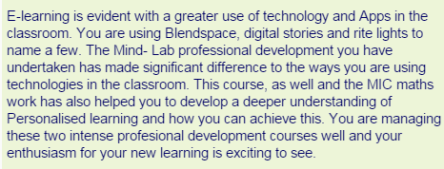 Chan, (2015).
Chan, (2015).
I believe Mind Lab has given me more confidence to adopt and adapt digital technologies, in addition experiment more in my classroom. My students are engaging in an authentic manner, plus my metacognitive abilities have been strengthened through modelling, critical thinking and deep reading. We are all in the same Waka, trying to create lifelong learners who live in a multi faceted society, NZCER (2012).
References:
Bolstad R, Gilbert J, with McDowall S, Bull A, Boyd S, and Hipkins R, for NZCER (2012). Supporting Future Oriented Learning and Teaching: A New Zealand Perspective.
Chan R, (2015) Registered Teacher Overview. Appraisal Freemans Bay School. http://www.freemansbay.knowledge.net.nz/index.php?page=nav_page&rec_id=freemansbay:276536&type=rep
Goleman, D (2002) Emotional Leadership Styles. Accessed September 6, 2015. http://www.educational-business-articles.com/emotional-intelligence-theory.html

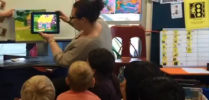
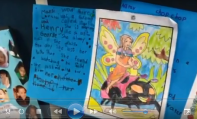
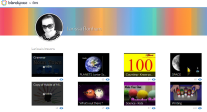
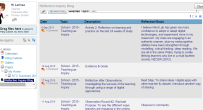
Leave a comment